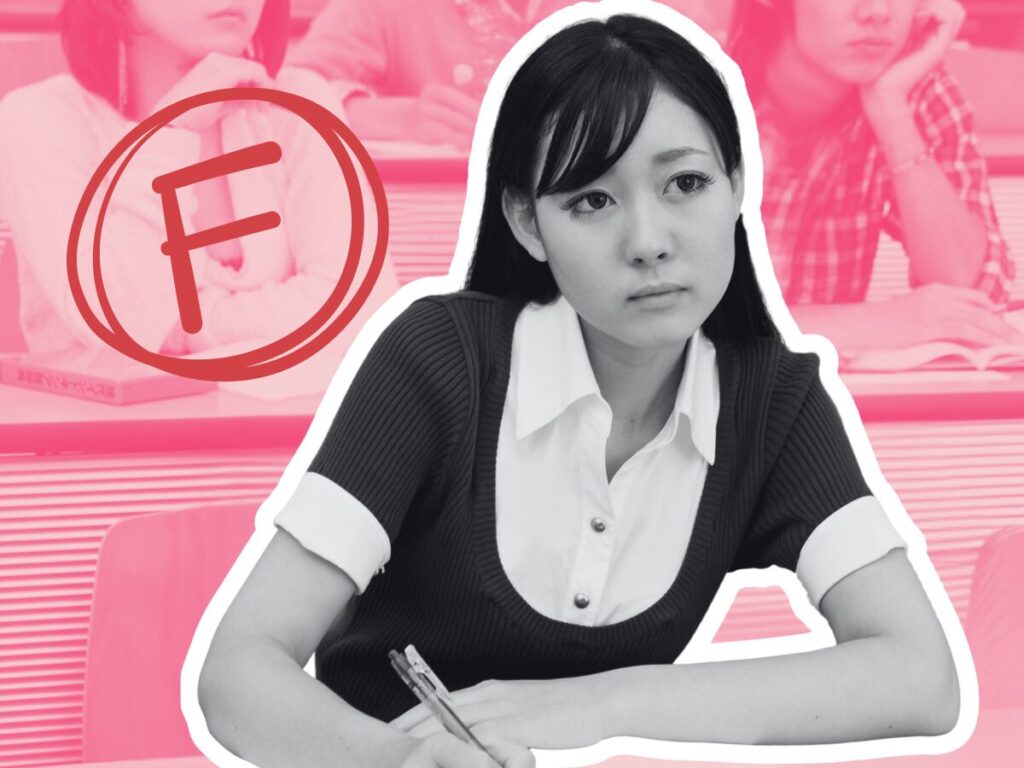In 2018, news broke in Japan of the top medical schools being investigated on charges of tampering with students’ entrance exam results to disproportionately deduct points from female applicants.
Authorities found that nine of the most prestigious medical schools in Japan had participated in a systematic programme of tampering with the scores of female applicants. The report found that ten universities had ‘inappropriate entrance exams’ which treated students’ differently based on characteristics including sex and age.
In many cases, the report found that changing female students’ results was a strategy to directly limit numbers of female students admitted. In one particular university, after two-round application processes, only 30 female applicants were accepted, compared to 141 men. This discrimination was dated as far back as 2006.
X later discovered that this tampering was silently accepted as the most effective measure to prevent the high admission of female students who some feared would ‘not join the medical profession after completing their studies.’ Meanwhile, Juntendo University, justified the tampering of women’s results by suggesting that women would do better in the interview section of the entrance exam.
Whilst the news shocked many, to others in Japan, it came as no surprise. Women in Japan have long endured social and cultural sexism which has translated into an economic discrepancy between men and women. In a country where only 12.4% of legislators, senior officials, and managers are female, women are more likely to work low-level or part-time unregular labour.
Damaging stereotypes and beliefs about women have long hampered women’s professional careers in Japan, and what may seem like a momentary blip in the institutional frameworks, is more representative of broader cultural and social understandings which have resulted in women being deprived of the most senior levels of professions in Japanese society.
Part of this deadlock is due to the cultural expectation that professional success equates to time served. Overtime is therefore a powerful currency, and for many women who carry the ‘double burden’ of caring duties, a currency that is often elusive.
In 2018, at a LDP party meeting, the politician Kanji Kato was caught saying that young women without children were a burden on the state, prescribing that women should have at least three children. Professor Yuki Honda, argues that the historic social circulation model built in post-war Japan which divided labour on the grounds of gender and later reinforced by a limited welfare state, positions women as primary caretakers of children and elderly in the family unit. Even where women do pursue professional careers therefore, there is an equally forceful social expectation to prioritise bearing children.
Another aspect is the politically rampant sexist stereotypes that are used to characterise women in professional contexts. In October 2023, Japanese Prime Minister Kishida Fumio appointed a record five women ministers out of a total of nineteen. This move was lauded by some as reflecting ‘a focus on gender’ and a continuation of the precedent set by his predecessor, the late Shinzo Abe who coined the frame ‘womeneconomics.’ However, Kishida duly remarked that he expected his female ministers to ‘do their jobs while fully demonstrating their sense and empathy which are unique to women.’
Reflected in this statement is the entrenched view that women have intrinsic and distinctive characteristics that directly contrast with their male counterparts. The implicit subjugation of these traits moreover, was reinforced by the lack of female appointees at lower levels of government where only 7% of 73 ministerial positions were given to women.
To reflect the stagnation of improvements to the positions of women in Japanese society, the IMF reported as early as 2019 that Japan was stalling in gender equality compared to the rest of the world. Four years later, Japan ranked a deplorable 123 out of 146 for the World Economic Forum’s 2023 Gender Gap Index. This was the worst result for Japan since the report was first published in 2006. This gap was explained by the prevalence of female non-regular workers who are paid uniformly less and treated as more dispensable than their respective predominantly-male and regular workforce.
During Covid-19, this economic gender divide lurched into something far graver. Uniquely to Japan, the pandemic caused rates of female suicide to rise sharply. The number of women who took their own lives rose in 2020-2021 from 42 to 7,608. Many pundits indicated that this was a result of the spike in job insecurity in unregular work, thus disproportionately impacting women. These economic impacts were compounded by lower rates of marriage, increasing the strain on many ‘unmarried women who don’t have a secure economic foundation.’ The pandemic, for many, highlighted the grave reality that the continuation of economic gender inequality has devastating consequences for women in Japan.
There are women fighting to challenge institutional and economic gender discrimination throughout Japan. One of these women is Ueno Chizuko who gave a fiery condemnation of elite universities’ complicity in the systemic gender subjugation of women. In 2019, at the University of Tokyo’s matriculation ceremony, she called for the most prestigious universities to acknowledge their role in recognising gender discrimination and other injustices like those which led to the medical entrance exam scandal.
Professor Yuki Honda has similarly reinforced the role that universities must play in promoting women’s political and economic empowerment. She argues that academic institutions will be key in reimagining how education, work, and family are divided, a change integral to challenge the precarious economic position of women across the country.
Gender equality in Japan is a distant reality. Programmes like ‘womeneconomics’ only go so far as to challenge top level senior positions and reinforce pervasive sexist stereotypes which consolidate male political and economic dominance. Key to ensuring more women are in senior economic and political positions, is the dismantling of social stigmas that consistently sideline women in professional contexts and contain their societal role to the household.
